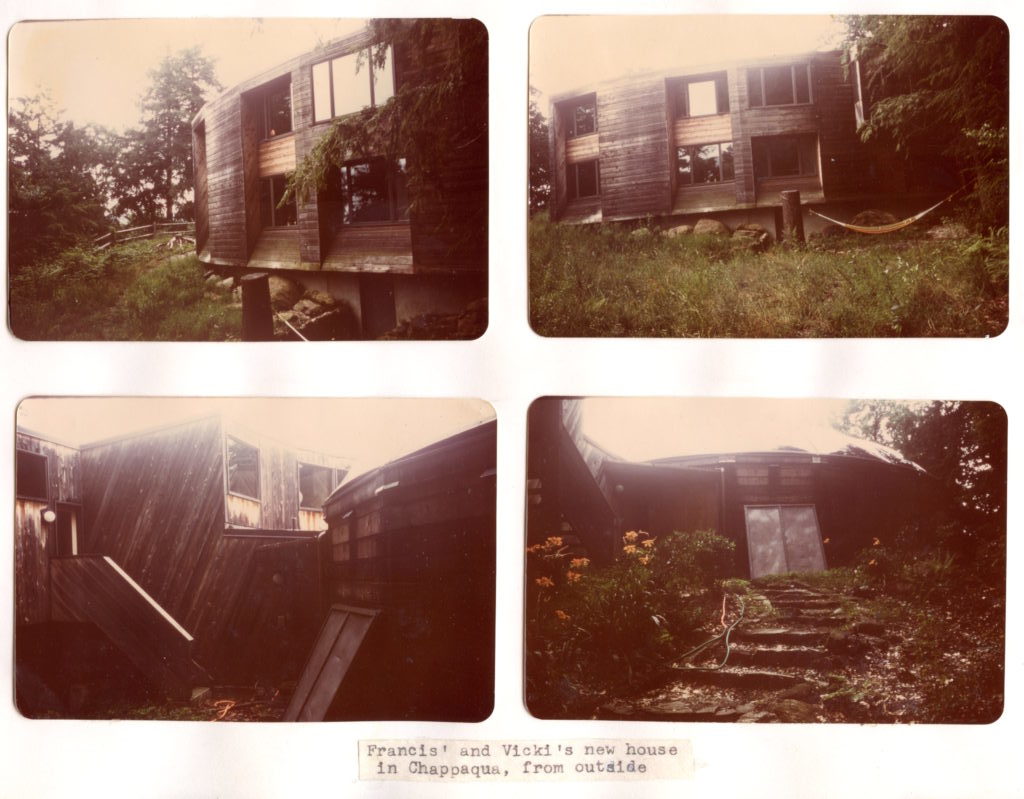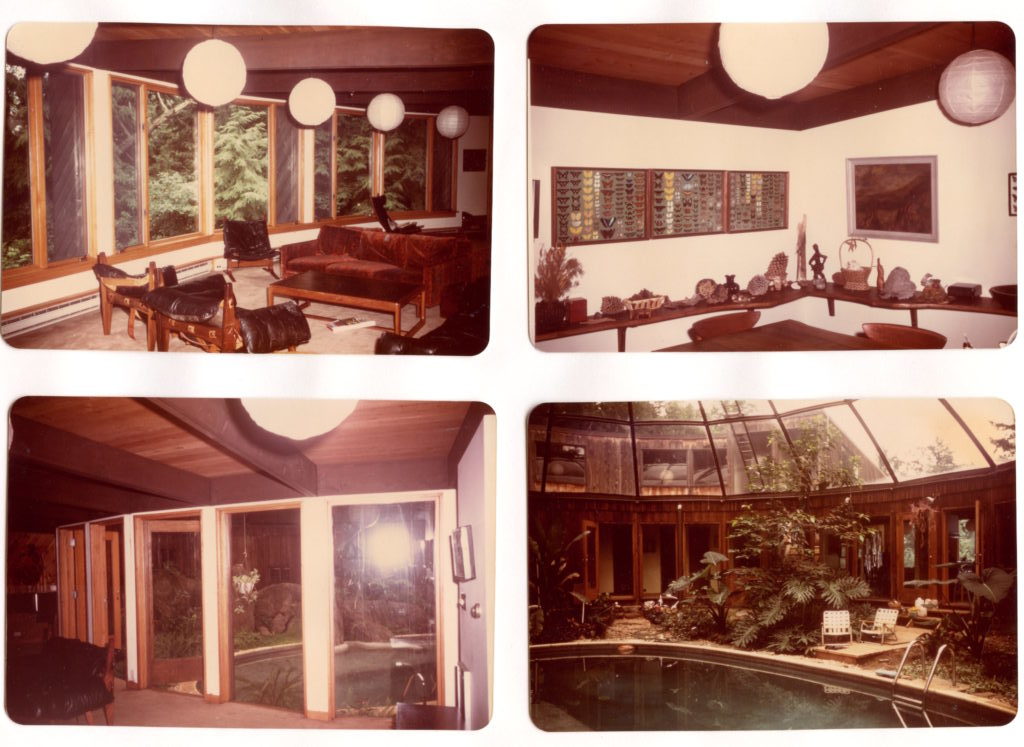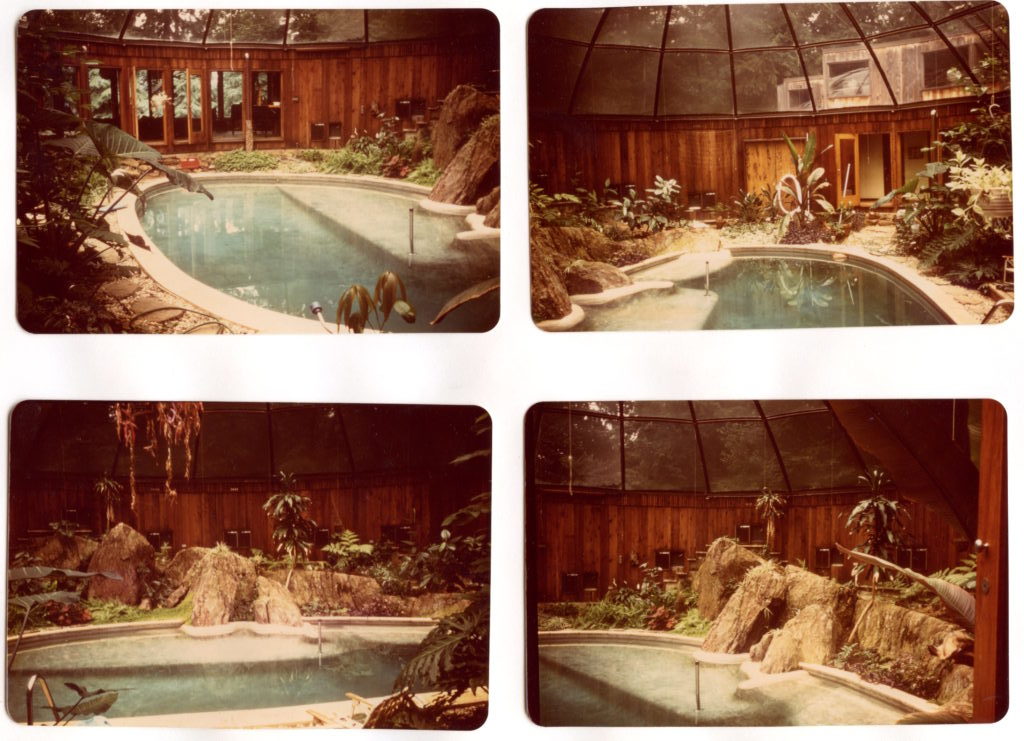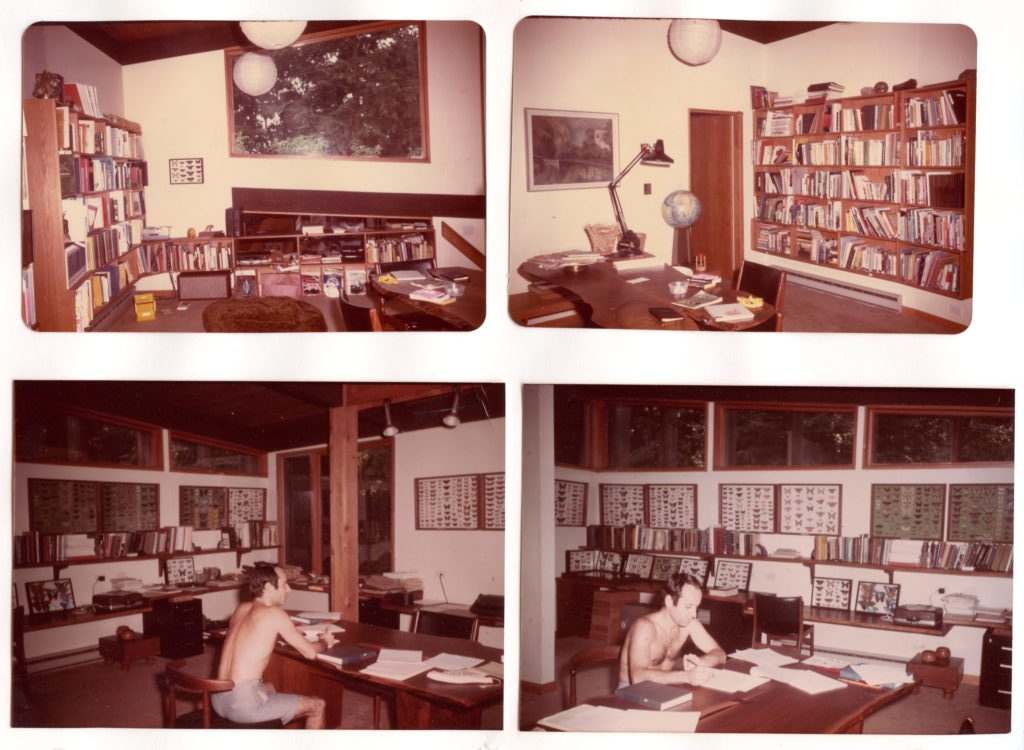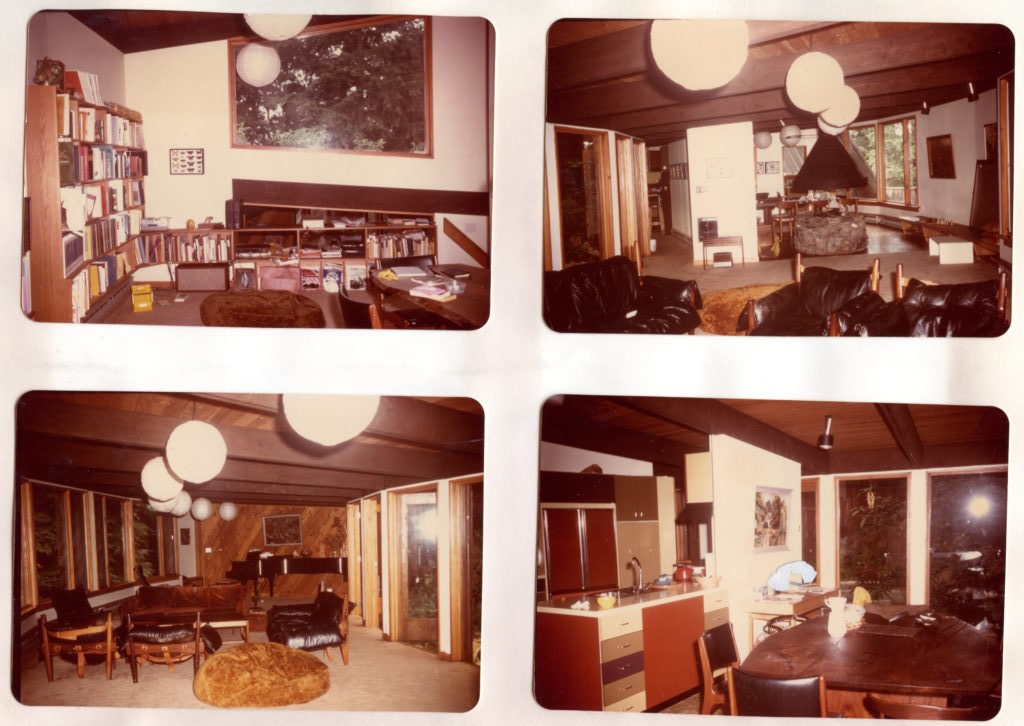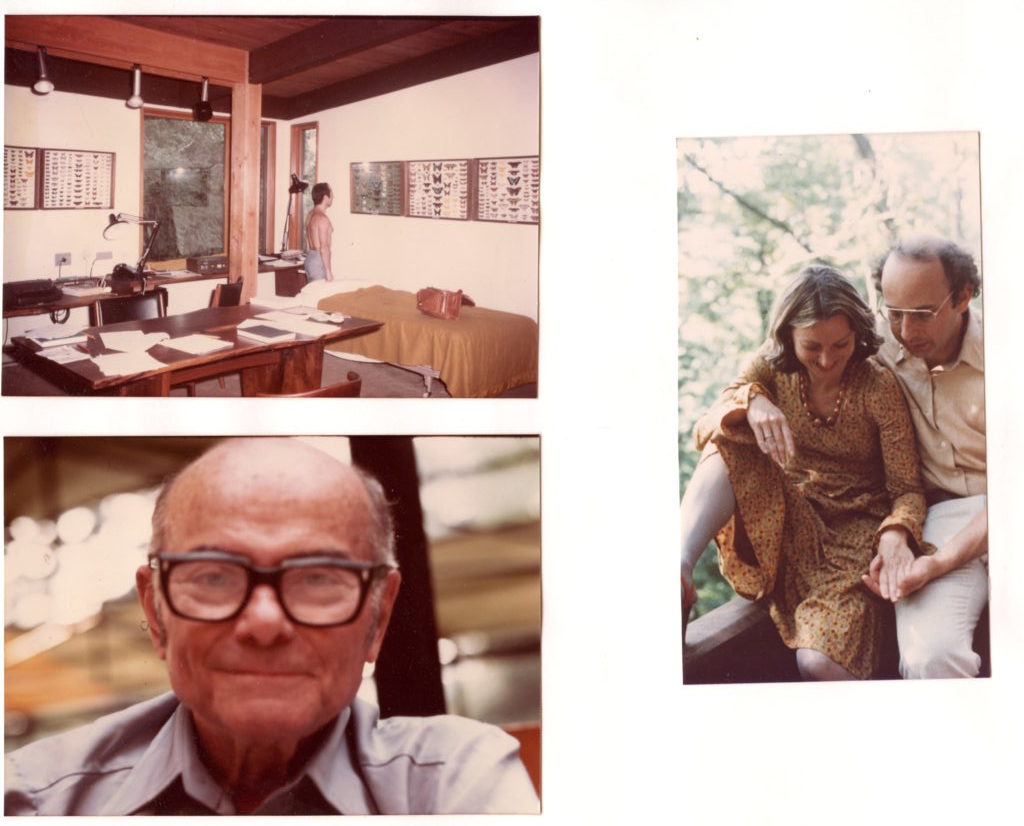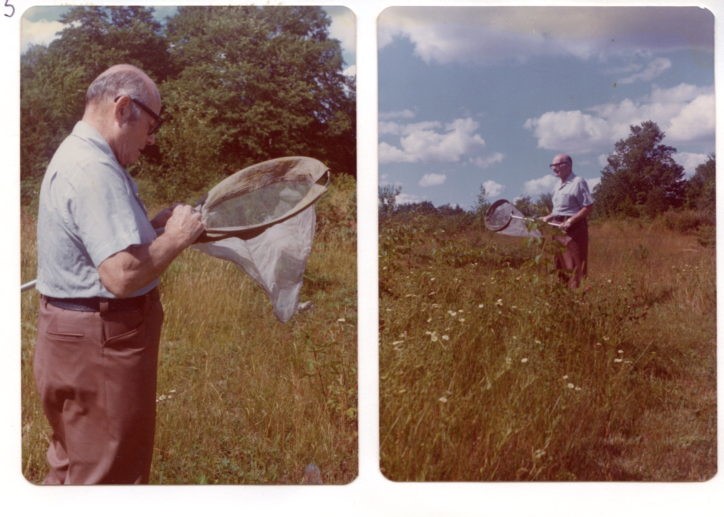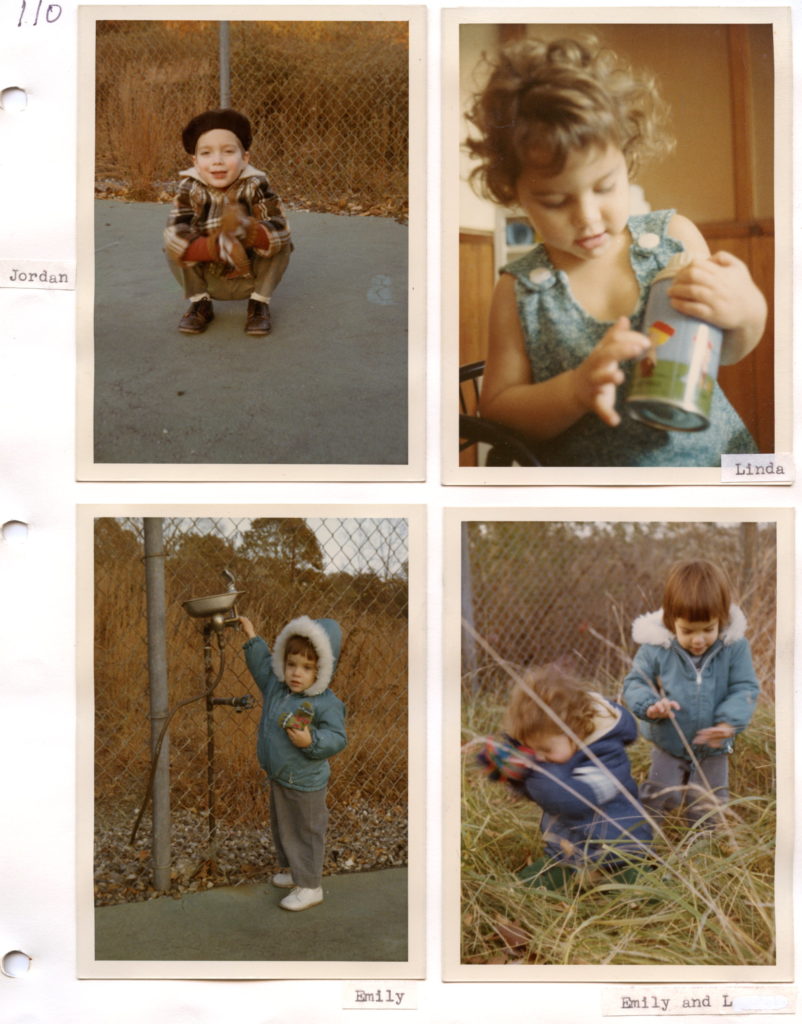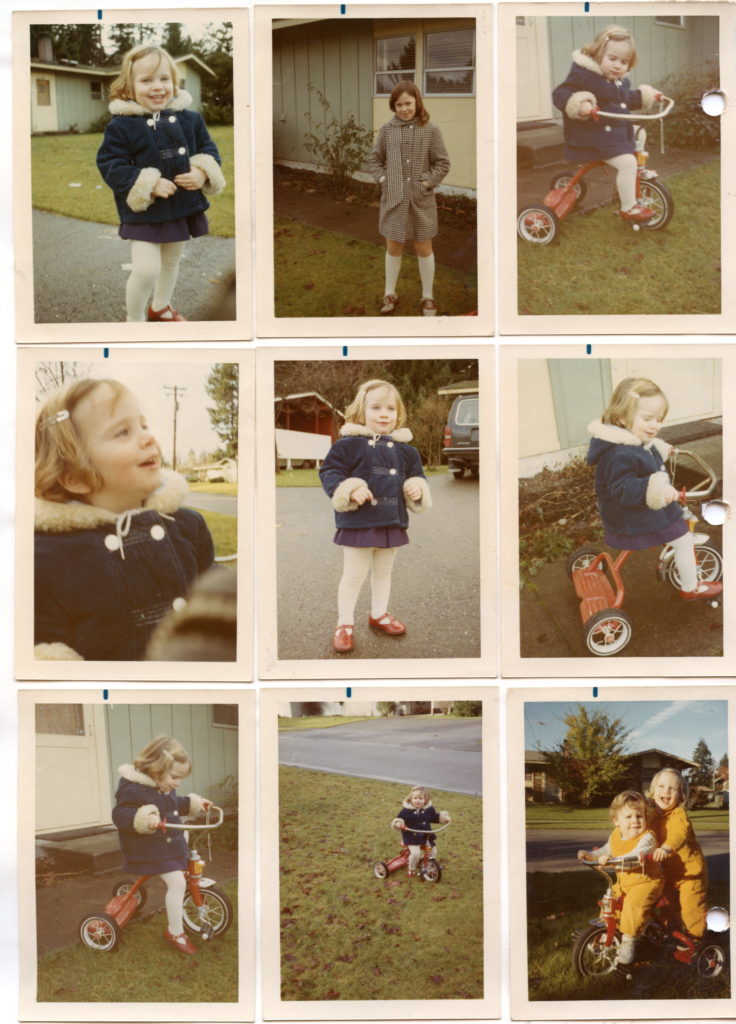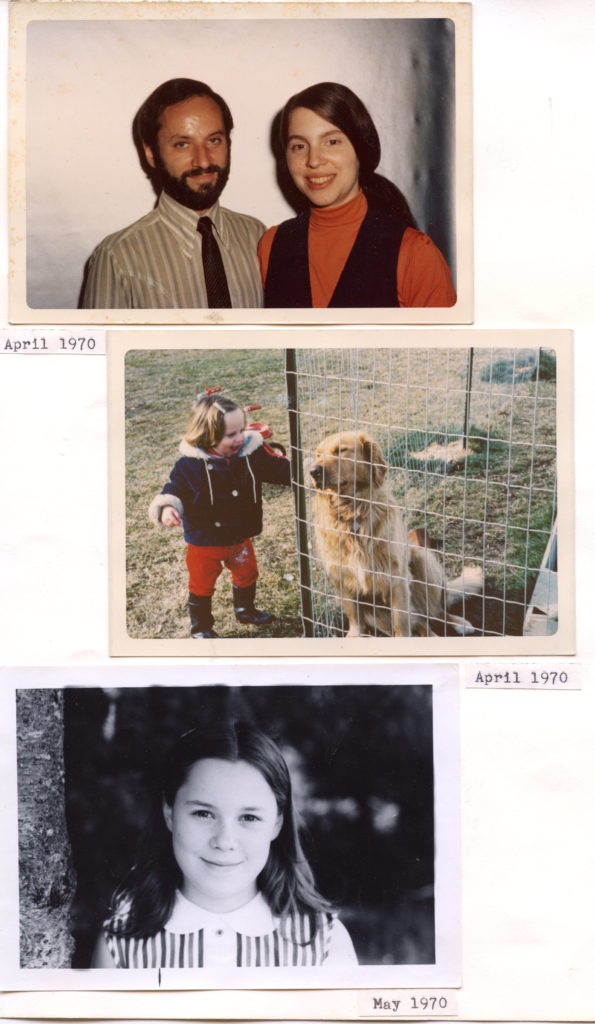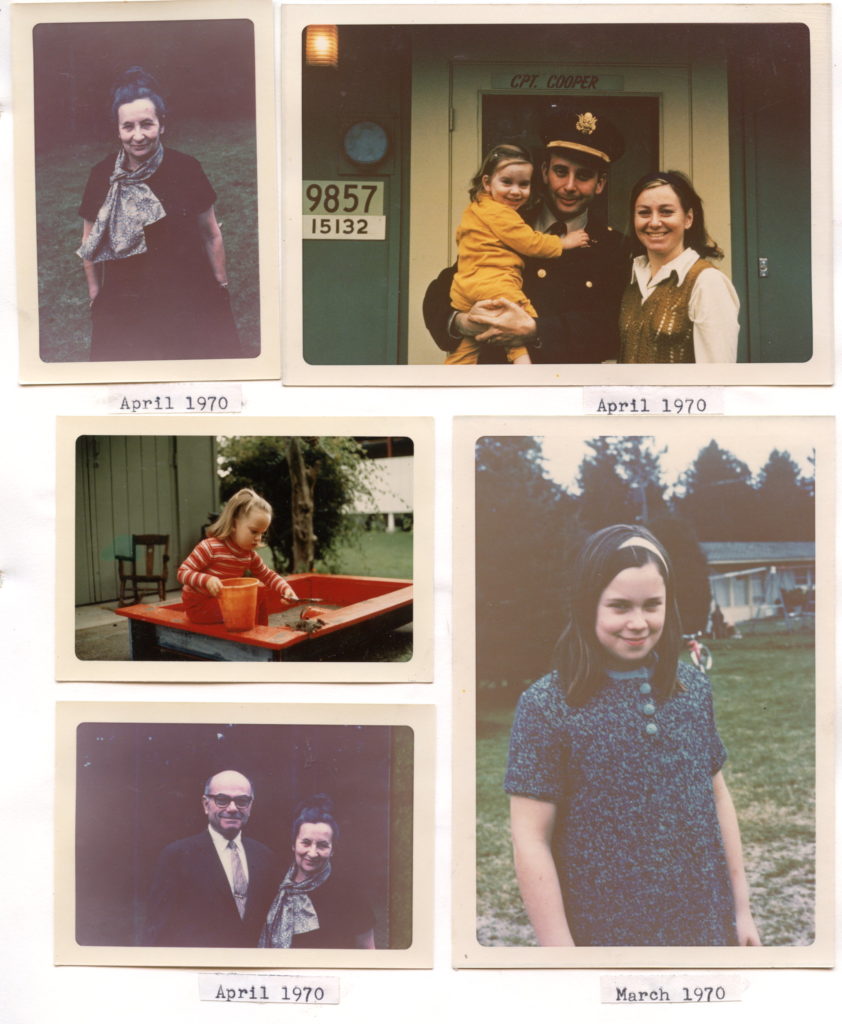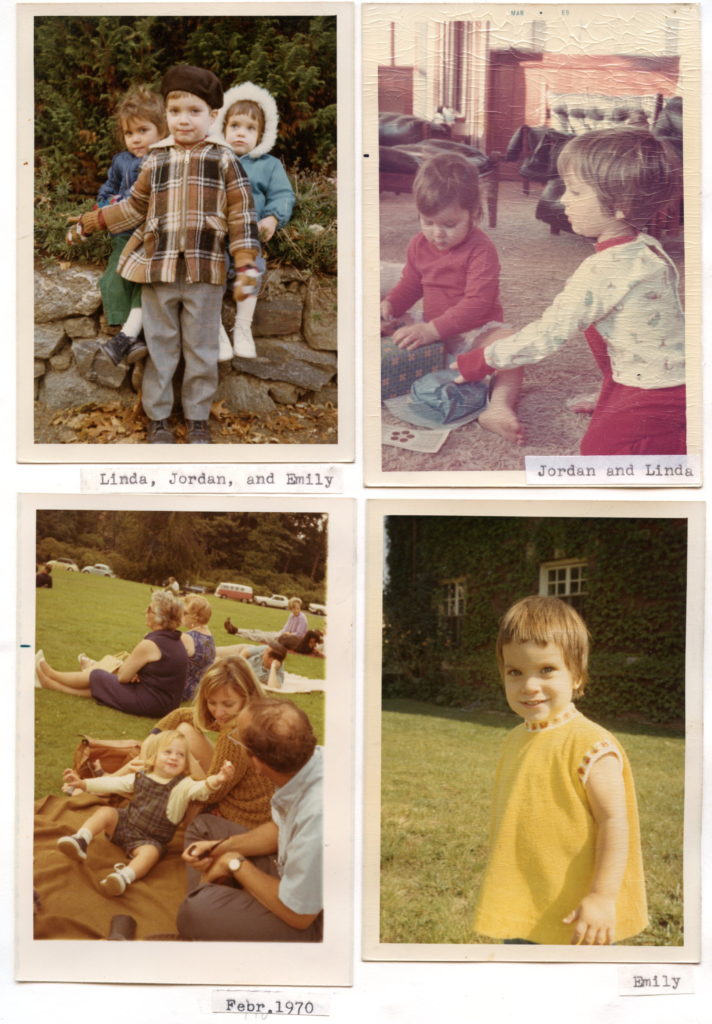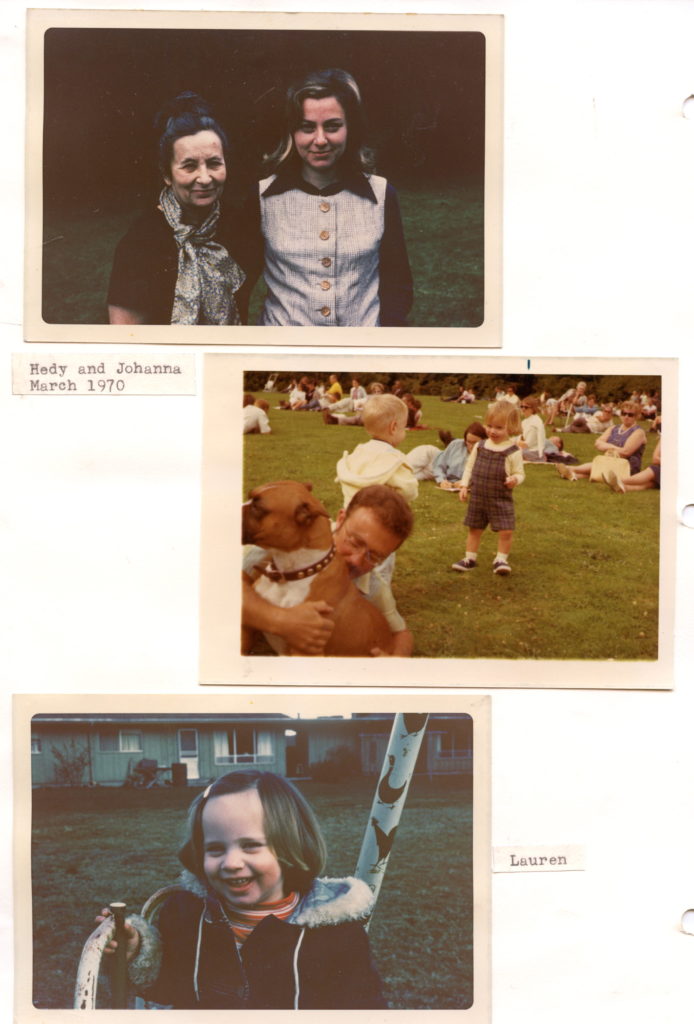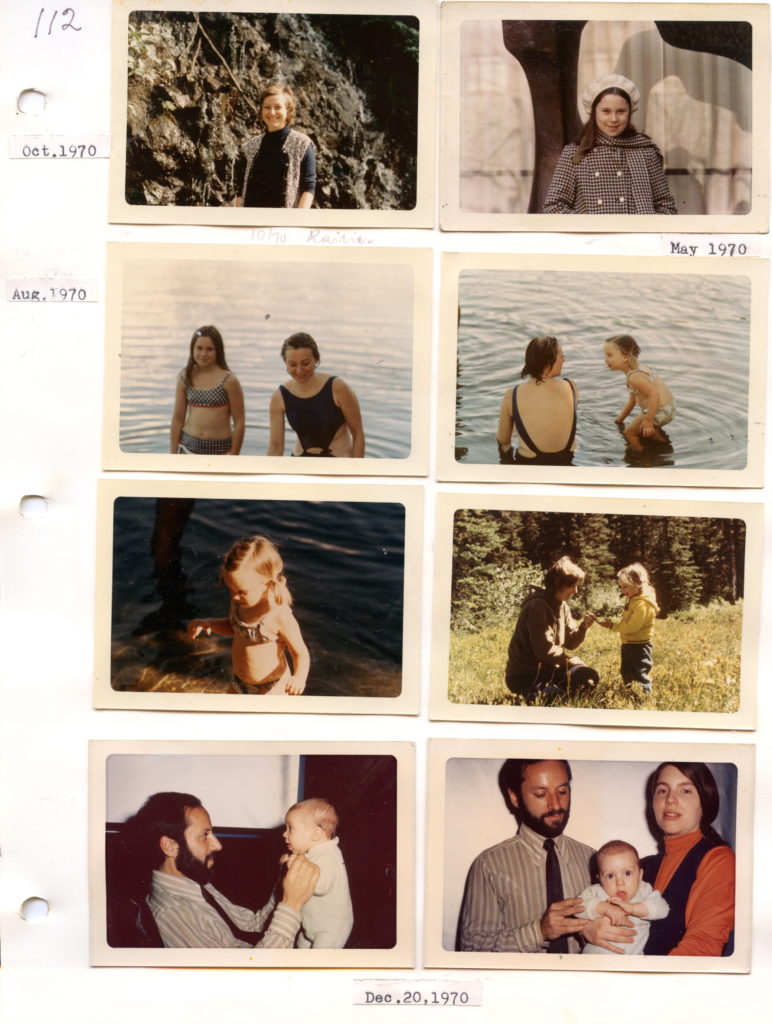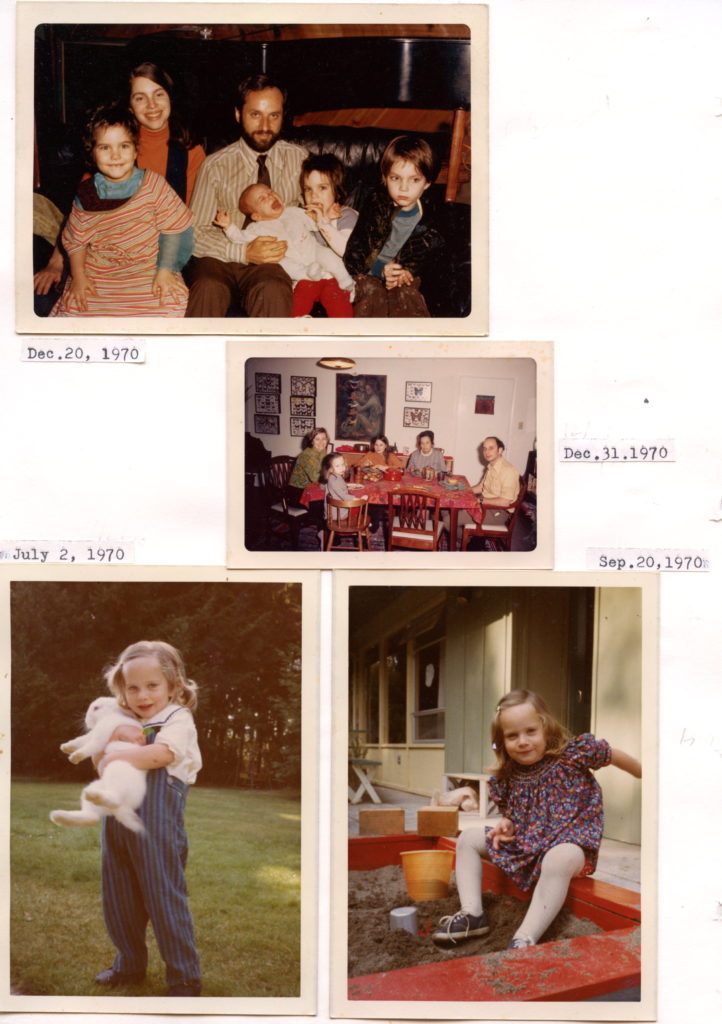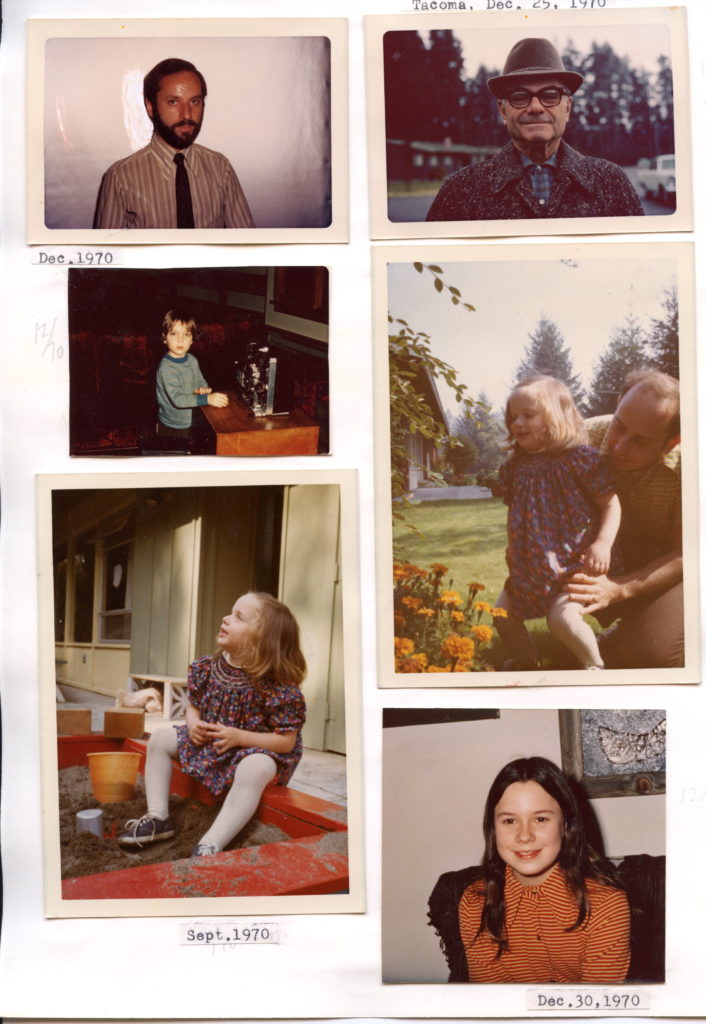1970
1970 was the year, when Francis and Vicki had their new home in Chappaqua finished and could move in with their newborn son David, born on September 27th. It is a fantastic house, well planned, built in a half-circle around an in-door swimming pool. The house in Usonia was put on the market.
My medical practice, after my return from Europe, was as good as before, if not better, and patients continued to come in droves.
I had not said it before and it is high time to mention it that Francis was a passionate butterfly collector, and he has a very big collection of beautiful butterflies, caught not only in the U.S., but also on many excursions to Central and South America and Thailand.
One day, he asked me, whether I would go with him on a tour to Guyana in South-America, and, of course, I gladly accepted, since I was also crazy about butterflies. So, we left on December 3rd, 1970 for Georgetown, the capital of Guyana, and before leaving got an address of a butterfly collector there, a Frenchman, Mr. Rene Nardine. We spent one week on that trip and at the end, while on the plane on the return-flight, I wrote down what we experienced there and I am bringing here what I wrote:
TRIP TO GUYANA, DECEMBER 9 – 13, 1970.
I picked Francis up in Manhattan at 7 A.M. I had slept only 2 hours, had to use the night for packing. Francis had not slept at all. Drove to Kennedy Airport, parked my car in the “Long Term Reduced Rate Parking Lot ” and went then with the baggage by bus to the Pan-Am terminal. We left at 9:15 A.M. Slept a lot before and after the Shishkebab lunch. Landed first in Barbados, where I bought some gifts for Lauren, then a second time in Trinidad, where Francis was able to contact Mr. Barca. We had 4 hours between planes, and Mr. Barcant invited us to his new home in Port of Spain. The ride by taxi took 3/4 of an hour. He showed us his butterfly collection, which I had seen the year before, Francis two years before, and Francis brought him as a gift some very fine and beautiful butterflies, which Francis had bought in New York from Mr. Giantz. He gave us some very fine blue-black Morphos, 4 to each of us. Back to the airport and off we went to Guyana, where we arrived at 9 P.M.
December 10. The Hotel Pegasus was very fine. We started very early, took a taxi and went out for butterflies to the area of the airport, a one hour ride south of Georgetown, at the edge of the jungle. Caught quite a number of nice butterflies. On the way back we tried some more places, at the end the Botanic Garden. There we had two mishaps. First Francis fell into deep water, up to the waist, when he slipped off a log, got a lot of water into his boots. Then, about half an hour later, I fell also into water. There was a water basin, as they have them in Botanic Gardens for water lilies. There were these large round leaves, floating flat on the water, and the spaces between the leaves filled with very small leaves, so that you could not see any water, the whole thing giving the impression of solid ground, covered with leaves. I just stepped on one of the large flat leaves and fell in, up to the hips. I crawled out just as fast, lied immediately down on my back and raised my legs up into the air so that the water could come out of my boots, but it was very unpleasant. Very soon I found out that I had dropped my movie camera while falling into the water. I called our chauffeur who was nearby, busy catching butterflies with the third net, which we had. He took off his shoes and pants and stepped into the water, and soon found the camera in the mud. It was a terrible thing, the camera filled with water. I got some water out, but much remained inside, even between the lenses of the objective. It was obvious that the camera was a complete loss. I had it only a little over half a year, a Minolta, bought in Japan.
Back in the hotel, we tried to contact Mr. Rene Nardine, who was a supplier of butterflies for Mr. Giantz in New York. We went late at night to him, without contacting him before, since he had no telephone. It was a very interesting conversation we had with him, most of it between Francis and him in French. The most important thing we wanted to find out from him was where to go to catch the large blue Morphos, and he gave us good advice for the next excursion and we followed his advice the next day.
December 11. We started out very early, went to the airline office, but could not get a plane for that day to Bartica, about 60 miles to the South-West, which could not be reached by car or boat. We had to charter a private plane, succeeded finally in getting a plane and a pilot. It was already 10:40, when we took off and we arrived 20 minutes later, flying over jungle and two very wide rivers.
After the landing, the difficulties started and there seemed to be no end of them. Circling the town of Bartica with the plane 2 or 3 times was supposed to be a signal that somebody in the town will come by car and pick us up. The town is 5 miles from the airport. But nobody came. The pilot who was staying with us, helping us to catch butterflies, finally decided to take off again and to circle the town again 2 or 3 times. We had lost already 1 ½ hours, waiting for somebody to come. This was the geographic situation:
The pilot and plane came back, but again nobody came. We decided that Francis should walk the 5 miles to the town and get a car there. He was lucky to get a truck soon on the road and we all went, the pilot with the plane and we with the truck. It was a terribly shaky ride, but not to the town but away from the town. There happened to come another truck and we changed to this one, taking us to Bartica to a very small hotel, where we rented two rooms and tried to arrange a trip by a small car to the jungle, 30 miles away. It finally could be arranged, a little Hover came and we went these 30 bumpy miles to a certain area, which was indicated to us by Mr. Nardine. It was late, about 3:30 P.M. when we arrived there, saw no Morphos, but we caught a number of other nice specimens, the driver helping us also with the third net. We arrived back at the hotel at about 6 P.M., had a little dinner and went to work, mounting our butterflies. We slept under nets, as there were plenty of mosquitoes there. Francis was stung quite a lot while mounting butterflies.
December 12. We started at 6:30 in the morning, arrived in the jungle at 7:30. At first there was nothing, but about half an hour later the first Morpho appeared, beautiful beyond description, the brightest blue imaginable, dancing in the air along the trees. Soon more came. There was a lot of running necessary to catch up with them and catch them. I left most of the running to Francis who is very good at that. Soon we had quite a few, some damaged ones, some very good or nearly perfect ones. At the end, Francis had 11 good ones and I had 4 and that was quite satisfactory. We also had some other nice butterflies, quite a lot. We had the road in the jungle alone for us, as the driver of the Rover had left us there in the morning, could not stay with us. He had promised to pick us up at 1 P.M., had taken our baggage along, but had left us his shotgun with ammunition for our protection. All the time, we lived on oranges and bananas, which we had bought at the market. We had a canteen with water, also some bottled mineral water. We advanced on the road, altogether about one or two miles, mostly in the shade of the very high ebony trees. It was one of two parallel roads going south-west, called Potaro Road, as it goes to the Potaro River. Once we saw an Agouti, a small rodent, walking slowly across the road. We had no camera, as Francis had left his fine Canon camera in the hotel in Georgetown, as it was too risky to take it along on that trip. We could have taken some beautiful pictures, the beautiful butterflies flying, the catching of them, the road between the high trees, the jungle behind the trees, etc. The driver came, even before 1 P.M., bringing his girlfriend, a typical beautiful Indian, along. He again helped us catching butterflies and took us then to the airport, where we took off on time at 4 P.M. with a regular plane for Georgetown. There were 17 people on that plane, 18 with the pilot. It was again a beautiful flight over the river at first and then over the endless jungle, nothing but trees, not a single empty spot of land. Our chauffeur was at the airport in Georgetown to pick us up.
In the evening, we had an appointment with Mr. Nardine at 8 P.M.; he had invited another Frenchman, also a butterfly expert, and we were invited to a nice dinner, consisting of duck with noodles, before that, pastries filled with meat, quite good, apple cider, imported from England, peanuts. We had a highly interesting conversation about butterflies. Back to the hotel for the big job of mounting the butterflies, which we finished at 2 A.M.
December 13. We started again early, went to the Botanic Garden. The catch was not too successful, not too bad either. Went then to Mr. Nardine, who had prepared an assortment of Morphos for us to take along. From there we went straight to the airport, went before arriving there again for butterflies and Francis caught some nice ones.
It was a wonderful trip. We left Georgetown at 4:30 P.M. and arrived at Kennedy Airport at 10:30 P.M.
For another vacation around Christmas, Hedy and I went again to Tacoma to enjoy our family. A few days later, we all

went by car to Vancouver in Canada, went there to the Stanley Park and the zoo and, although it was raining there most of the time, enjoyed the trip very much, especially on account of Nancy and Lauren, who were great travelers. We were in Vancouver when 1970 ended and 1971 started, went then back to Tacoma and soon also to New York.
I soon got another invitation from Francis to Join him on a butterfly hunting trip, this time to Ecuador. Of course, I accepted and we left on March 23rd, 1971. Again I wrote down our experiences on that trip on the flight back to New York and here is what I wrote:
TRIP TO ECUADOR, MARCH 23 to 29, 1971.
March 23. I met Francis at Kennedy Airport at 9 P.M., where we both arrived in taxicabs exactly at the same time. The plane made two stops, one in Miami, Florida, and the other one in Panama. It was a plane of the Braniff Line and we could sleep quite a few hours and arrived at 8:30 A.M. in Quito, Ecuador.
March 24. We had planned to go to El Puyo in the interior by plane, but there was none available. We finally found a man willing to take us in his taxicab to El Puyo, and we started the long trip first straight south to Ambato along the Pan-American Highway. We interrupted the tour there once to catch butterflies and got many very unusual ones. The place was very high, more than 10.000 feet above sea level and nearby, not more than about 20 miles away, was the Chimborazo, 20,561 feet high, snow-covered, one of the highest peaks of the Andes Mountains, the highest ones, being a few hundred feet higher, further south in Bolivia. The air was thin there and I felt my heart beating faster and I had to breathe deeper, could therefore walk only slowly. After Ambato, the road went east, going all the time downhill along the Pastaza River to El Puyo, which is already in the Amazon River area, about 3,000 feet high, and arrived there at about 7 P.M., could get a room in a small hotel, also a dinner, and went right away to work on our butterflies.
March 25. We got up at 6 A.M., had arranged with a taxi driver, named Edison Mesa, to pick us up for a trip to Tena, which is north of El Puyo. It was not a sunny morning and catching was less good than it could have been on a sunny day, but we were quite satisfied. We stopped many, many times on the road, whenever we saw butterflies flying, and advanced therefore only slowly. We had to cross a river on a ferry boat or rather a raft, which looked at first like a dangerous adventure, but turned out to be harmless, especially since we saw that the raft transported even heavy trucks or busses across. It was the river Napo, quite wide and fast. The raft ran along a cable, which spun the river, and there was therefore no danger of getting out of control. Once on the other side, we went soon straight to Tena, where we caught some very beautiful specimens. Before going back, we found a place near a soda-and-fruit stand, where we could sit down at a table and cut up and eat our pineapple, which we had taken along, also bananas and oranges. This was our usual food on our trips. We also had always a bottle of club soda with us, some sesame seed sticks or similar sweets, and ate our meal in the hotel in the evening. When we returned, the raft took us across the Napo together with a heavy truck, and before the truck took off the raft, we were advised to keep our car close to the truck and move at the same time, when it went on land, which we did successfully. If our driver would not have done that, the car would have rolled backwards into the water, after, the truck had left. Our taxi-chauffeur was an excellent driver and turned out to be also a very good butterfly hunter with the 3rd net, we had taken along. There was heavy rain coming down almost all the way going home and that gave us a chance to sleep. We had quite a lot of work that night, mounting all the butterflies we had caught, which is a great pleasure, as we admire again the beautiful colors and shapes of the different specimens.
March 26. My alarm clock rang at 6 and we were on the way at 7 A.M. after a good breakfast and buying fruit for the day. The weather was not too good on that day, it was cloudy and we went to two different areas, first east of El Puyo, then back west and finally south-east along the river Alpayaco, which is a tributary of the river Pastaza, which again is a tributary of the river Maranon and this one of the Amazon River. Only late in the afternoon the sun came out and then we caught a few nice ones. Once I was caught myself in a thick jungle, where I had great difficulties to get out again, coming again and again close to the muddy edge of a little brook. By calling Francis, I could find the right direction, but had to go through thick underbrush, had to rip vines and twigs apart to advance towards the road from which I heard Francis’ voice. Once, when I went up the hill near a house, a dog barked and a hen got scared and made a lot of noise, and a woman came out and thought that I wanted to catch her chicken with my net. I succeeded in convincing her that I was only catching butterflies and not chicken. What we see and enjoy on these excursions is, of course, more than only butterflies. There are all the amazing tropical flowers along the roads, great many orchids, most of them pink and quite large, then often the so-called lobster claws, Bougain-villas, and many others. Then birds of all kinds, often bright yellow ones, sometimes a vulture high up in the air, making its slow wide circles. The people we met were very unusual, almost all of them Indians with black hair, sometimes men wearing braids, wearing especially wide pants and a very heavy poncho hanging down in front of his body on both sides. Women without exception wear men’s hats. Almost everybody carries some heavy load or a child, and they are walking, where there are no houses for many, many miles, on sunny roads, probably all day long. Some people asked whether we are fishing, and all wanted to know why we were catching butterflies and whether we catch them in order to sell them. So I had to tell them that they were not even worth a sucre, which is a 1/4 of a penny, but that they are of great value in another way, since they show the wonders and beauty of the world, though only in a small area. Back to the hotel for dinner and to our room for the work on our butterflies. One o’clock is the earliest we finish and can go to bed. Francis had a sore throat and I gave him Penicillin or rather Ampicillin 500 mg., which he then took 3 times a day and brought improvement the next day and complete cure the next following day.
March 27. We went again to the same area, where we were hunting 2 days ago, on the road towards Punto Napo, where the ferry raft is. This time we were lucky, the sun was out, the sky blue, and we had an enormous success. Francis had caught on the first trip to Tena a large swallowtail, but this time he caught a fantastic one of great beauty, also a Uranid, green with blue tails and some other fine specimens, and I caught a Morpho Menelaus in quite good condition and some other beauties, Francis alone 131. I did not count mine, caught probably about 50. I got quite sick in the afternoon, had exposed my head to the sun for about half an hour and got a kind of sun stroke. I was almost unable to walk anymore, had to sit down in the car, with a very rapid pulse and profuse sweating. I did not know what it was, had forgotten that I had been out in the sun without my cap, though it came from something I had eaten or from overtiring myself. I fell asleep for a short while and felt then a little better. I forgot to mention that we had again taken the ferry raft across the river Napo. It started to rain and we took the raft ride back again and when we came across, we went to a little shack, where I got a cup of strong coffee, which worked like a wonderful medicine and I felt immediately very fine again. The next day, when I felt and saw my sunburn on my head, where I am bald, I knew that it was a sun stroke, similar to the ones I had a few times, 30 years ago, in Cuba, after I had walked in the sun without a hat. It was, of course, this time not a severe sun stroke, but only a slight one. That night we went to bed at 4 o’clock in the morning, on account of the especially big catch and work on the butterflies.
March 28. We left now our hotel for good, a little later than usually. Our plan was to go to Guayaquil by car, to stay there over night, and take the plane there in the afternoon at 1:15. On the way there, we stopped all the time when we saw butterflies and were again very successful, although the weather was not too good. Our chauffeur Edison was very good in that, stopping immediately when Francis asked for it. He always had the third net and made some very good catches himself, giving what he caught sometimes to Francis, sometimes to me. Once he gave me a very beautiful Uranid, very large, which he had caught and so I have one also. Francis has two. On the way, we met a friend of Edison, whom he had asked to meet him, since he needed somebody to be with him on the way back from Guayaquil to El Puyo, since it was dangerous to drive alone at night on account of ‘bad people’. So, we were sitting 3 in the front of the rather small car and I alone in the back, with all the baggage there next to me, also the 3 nets. At 3 o’clock, when the weather started to get bad again, we began to move faster. We slept most of the time on the way to Ambato and then to Riobamba, where we had a flat. They changed tires when it was already dark. Before that, we saw the snow-covered Chimborazo. Then we took a road which was very bad, dug up for repairs all the way, with deep holes and rocks, which made it a very slow bumpy and wavy ride for about 20 kilometers or more. Then we came to a long stop at a place, where a bridge over a river was under construction, but not usable yet. Cars and trucks had to cross the river there through the water, which seemed to be a few feet deep. It was dark, but, where people had lanterns, we saw that all the cars and trucks in front of us had stopped, some of them standing in the water, so that about half the wheels were in the water, and we saw people putting rocks into the muddy water for a truck to go up a steep road. Our driver and his friend got scared, had apparently decided to abandon us there, and came up to us with the proposal to leave us there, and we should wait for a bus, which would come at 6 in the morning to take us to Guayaquil. We protested vigorously, especially since we saw the truck across the river moving slowly and going up and some other trucks moving also. And when we finally saw a passenger car going quite fast up that same road, we succeeded in encouraging our driver, telling him that he will also be able to cross the river. We went and made it through the river and on the other side through a muddy road and through another branch of the river, not before waiting for quite a long time for clearing of the way, as there were two trucks coming in the opposite direction and blocking our way. We finally came on a good road and could go very fast. It was about 2 A.M. when we arrived in Guayaquil, had slept all the time since we had crossed that river, and it had rained heavily all the time. We went to the very fine Hotel Attahualpa and got a room, where we had to do some work on our butterflies, took a shower and then went to bed and slept till about 9 A.M.
March 29. We called up Dr. Aruba, who had given us informations, before we had started our trip, about the best areas for catching butterflies. He invited us to come to his office in the Department of Hygiene, which we did. He showed us some of the old collections of his predecessor of butterflies and other insects, also of other animals in jars and some stuffed ones, among them a condor. It was an interesting visit. Then, before going to the airport, we stopped on the road and went into a sideroad, where we found butterflies in enormous numbers, which we had not seen in Ecuador before, since we were now in the low-lands, and caught quite a few, but had to leave soon, as we were molested by mosquitoes, which stung us on our hands and necks, also because we had to be on time at the airport. Getting through with our baggage to the counter for weighing in and clearance of our tickets, passports, etc. was quite a nightmare on account of the masses of people there, pushing from all sides, but we came through unharmed and finally made it to the plane. It was a plane of the Lufthansa and it turned out to be a good flight, in spite of the many Germans on the plane, which made us feel like being in Germany. But the food was excellent, the stewards and stewardesses very friendly. We landed in Kingston, Jamaica, where we went out to buy a few things. We arrived shortly before 9 P.M. in New York. It was a most pleasant trip. We have a lot of movies which will prove it.
